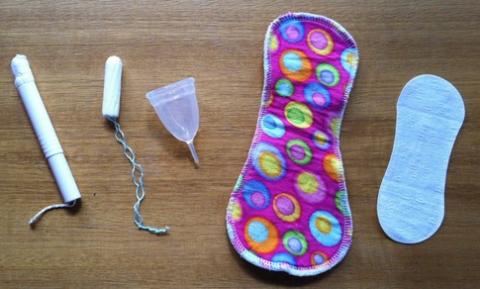
Teaser campaign II
Economic dimension of menstruation
Menstruation is not just a biological process that happens every month. It is also a costly biological process. People who are bleeding every month are in the situation of spending an unjustifiable amount of money in order to take care of their health. Why unjustifiable? Simply because they do not only pay for the hygienic products, they also pay taxes attached to those products, while other products that are necessary for hygiene or health are not taxed. For example, “women in the UK are fighting to axe the 5% tax on tampons (it used to be taxed at 17.5 %!), which are considered “luxuries” while men’s razors, for some baffling reason, are not.” (1) In addition, health insurances in many countries do not cover menstrual hygienic products, while in different parts of the world these products are completely unaffordable. So people who are bleeding are in the situation of seeking alternatives that often are unhygienic and put their health in danger. Having access to affordable menstrual hygienic products is a right and not a caprice. Inaccessible or unaffordable sanitary products for menstruation affect people who are bleeding in the following (some) ways:
- Inaccessible or unaffordable sanitary products for menstruation can mean missing school for girls, increased dropout rate, missing work for women, and repeated vaginal infections because of unsanitary menstrual products.
- Access to tampons and pads for low-income people who are bleeding is a real problem. In some countries, food stamps don’t cover menstrual hygiene products, so some people who are bleeding resort to selling their food stamps in order to pay for “luxury” products, like tampons.
- Women in prison often don’t have access to sanitary products at all. Or if they do, then they have to pay which may be a burden for some as not everyone can work in the prison or have relatives to support them.
What are the alternatives?
- Have menstrual products free of taxes. For example, starting July 1, menstrual hygiene products — including tampons, pads, and menstrual cups — are no longer subject to Canada’s five percent “Goods and Services” tax (GST).
- Get the menstrual cup. The cup is made of medical grade silicone, shaped like a bell and is flexible. It is environment friendly and help you to save money. Demand from the government to have it affordable and accessible menstrual cups (more information about menstrual cup in the next teaser campaign)
- Handmade sanitary products. You can check different designs at: http://tipnut.com/free-pattern-for-washable-feminine-menstrual-pads/ Handmade sanitary products are something to try if you suffer from regular yeast infections or find manufactured napkins irritating (causes itchiness or skin irritation). Also, they are the environment friendly and help you to save money.
These are just some suggestions of alternative actions that we could undertake. Any other way, in line with human rights, to advance accessible and affordable menstrual hygienic products is important and necessary. Do not be shy. Talk about menstruation and the needs that come with this biological process.
(1) http://www.theguardian.com/commentisfree/2014/aug/11/free-tampons-cost-feminine-hygiene-products
For this second teaser campaign, we prepared three informative posters about the costs attached to menstruation in three different countries, namely Hungary, Colombia and Lesotho. The information displayed on the posters is obtained through discussions with CEU students originally coming from these countries. Therefore, it should be treated as such and it aims to provide you with basic understanding about how much menstruation can possibly cost in one country or another. You can see the posters below and around the main campus (Nador 9).
For more details about the whole campaing visit at: https://hrsi.ceu.edu/news/2015-10-27/menstrual-hygiene-day